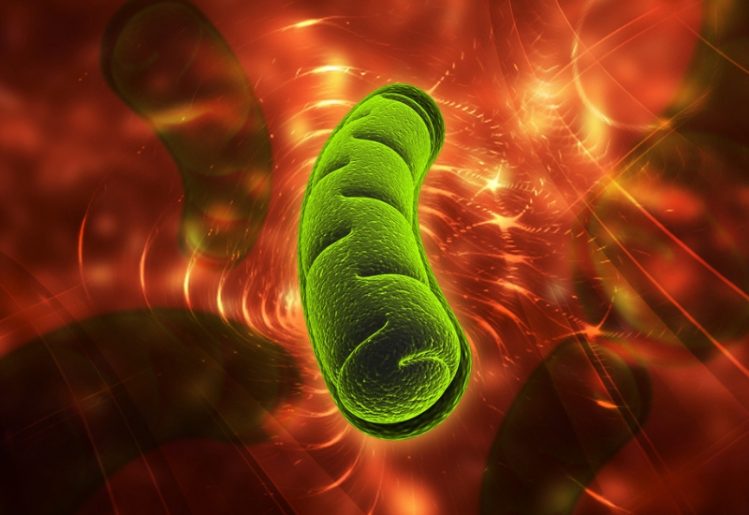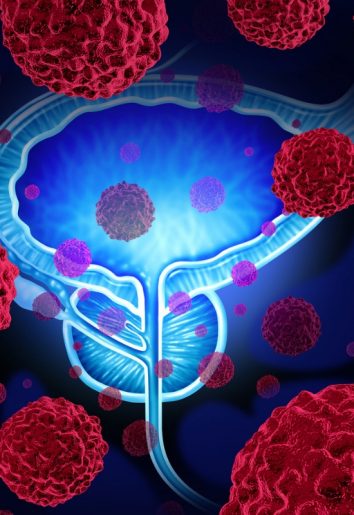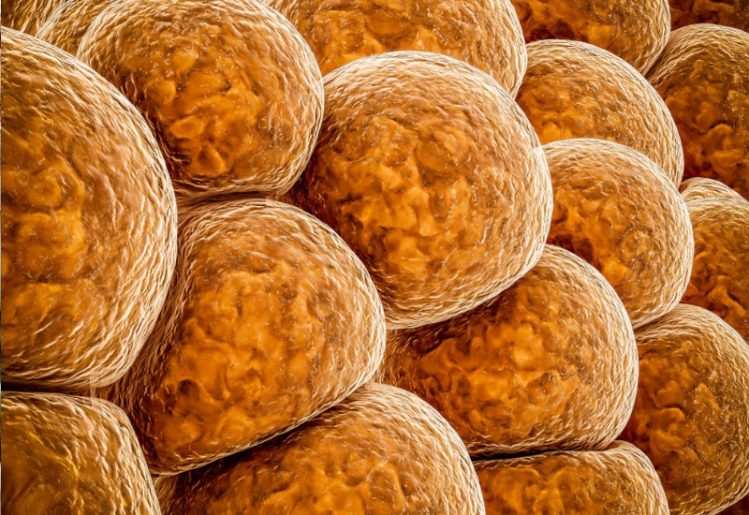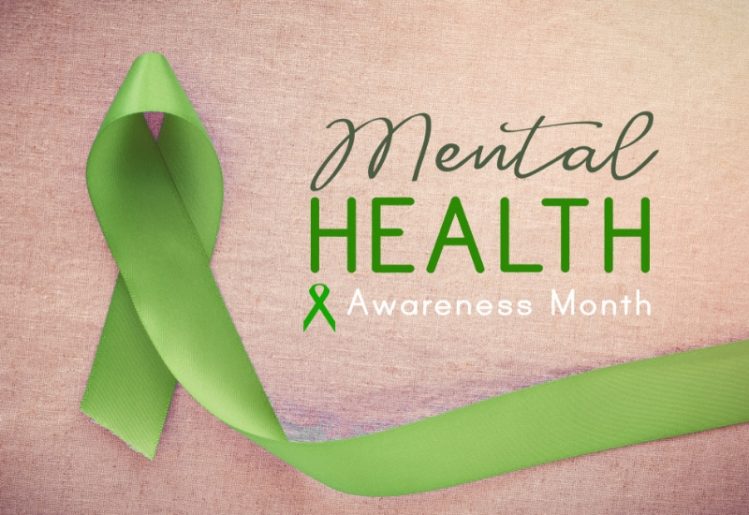Mental health issues are some of the least-understood medical conditions. Unlike many physical health issues that present with a clear path for treatment, individuals who suffer from mental health concerns are often not able to find ways to alleviate their symptoms. One promising field of research based on the newly discovered link between mitochondria and anxiety examines how the functioning of the body’s mitochondria may affect a variety of mental health concerns.
What Are Mitochondria and Why Are They Important
 Accounting for approximately 20 percent of an individual’s body weight, mitochondria are present in every cell except for red blood cells. As a cell’s source of power, mitochondria play a critical part in the overall function of the body and mind. Because they deliver power, cells that require energy house more mitochondria.
Accounting for approximately 20 percent of an individual’s body weight, mitochondria are present in every cell except for red blood cells. As a cell’s source of power, mitochondria play a critical part in the overall function of the body and mind. Because they deliver power, cells that require energy house more mitochondria.
Poor mitochondrial function can lead to a host of physical and mental health issues. Understanding the connection between the health of the mitochondria and your overall health can help you to take steps to protect these cellular powerhouses. While most people develop problems with mitochondria as they age, there is a small percentage of people who are born with mitochondrial DNA health issues.
Understanding the Relationship Between Mitochondria and Anxiety
Scientists and doctors have established a connection between the health of a body’s mitochondria and mental health. Because of this connection, targeting mitochondrial function may be helpful in treating stress-related disorders and other mental health issues. It is important to note that there is not one single way to treat mental health disorders. Using a multi-faceted approach that includes examining the effect of mitochondrial function will yield the best results.
While mitochondria problems may be the culprit behind a variety of mental health issues such as depression and mood disorders, they are also often the driving force of anxiety. A diagnosis of excessive anxiety covers a wide array of conditions that present as irrational worry, fear and panic. In the U.S., it is estimated that over 18 percent of the population have an anxiety disorder.
Both animal and human studies have identified a link between mitochondrial function and the development of anxiety. Animal studies have specifically demonstrated that mitochondria therapy may be instrumental in protecting the mitochondria and reducing anxiety in mice.
Individuals who suffer from high anxiety often present with issues of energy metabolism and oxidative stress alterations. What scientists do definitively know is that this is a bidirectional link. This means that oxidative stress alterations and energy metabolism are observed with individuals with high anxiety. Likewise, changes in the function of the mitochondria may also be a cause of the heightened levels of anxiety. Because of this bidirectional link, many physicians believe that the pharmacological manipulation of mitochondria may be a successful treatment to help those that suffer from excessive anxiety.
How to Test Mitochondrial Function
Despite modern advances in medicine, there is no set way to test mitochondrial function. Part of the problem is that these types of disorders are often masked by other non-specific symptoms of additional health issues. Many physicians discover the mitochondrial issue by checking iron levels, insulin function, various hormonal production and more. For the most definitive diagnosis, healthcare providers look to muscle biopsies for guidance. An adrenal stress test can also provide clues about the function of the mitochondria.
One of the reasons why this issue is challenging to diagnose is because there are so many problems that affect mitochondria function. Precursors of this issue include hyperglycemia, inflammation, iron toxicity and excessive stress. These health problems often lead to increased levels of mitochondrial DNA damage, affecting the ability of the mitochondria to sustain energy production within the cells.
How to Protect the Cells’ Mitochondria
 There are a number of steps that you can take to heal mitochondria or prevent future issues. Like most health issues, getting enough sleep, eating well, engaging in regular exercise and being diligent about reducing stressors in your life will all help to heal these damaged mitochondria.
There are a number of steps that you can take to heal mitochondria or prevent future issues. Like most health issues, getting enough sleep, eating well, engaging in regular exercise and being diligent about reducing stressors in your life will all help to heal these damaged mitochondria.
In addition, there are products that you can take that will protect the cells’ mitochondria against oxidative damage while nourishing them at the same time. Mitochron is a natural, chronobiological formula that helps to protect the cells against burnout so that you enjoy increased energy levels.
While there is still more to understand about the function of mitochondria, it is clear that these pockets of cellular power may hold a key in helping physicians to treat a wide array of mental health issues, including anxiety and depression. As more becomes known about the function of mitochondria, the medical profession is hopeful that this knowledge can be harnessed to deliver effective results to those who struggle with mental health issues.
 Overall, prostate cancer is a widespread problem: As the American Cancer Society reports, there were 174,650 new cases in 2019. A total of 31,620 deaths were also attributed to prostate cancer last year. While advanced prostate cancer can be fatal, getting an early diagnosis will improve the effectiveness of treatment. When diagnosed early enough, standard treatments such as surgery, chemotherapy and radiation therapy are effective in eradicating this type of cancer.
Overall, prostate cancer is a widespread problem: As the American Cancer Society reports, there were 174,650 new cases in 2019. A total of 31,620 deaths were also attributed to prostate cancer last year. While advanced prostate cancer can be fatal, getting an early diagnosis will improve the effectiveness of treatment. When diagnosed early enough, standard treatments such as surgery, chemotherapy and radiation therapy are effective in eradicating this type of cancer. While eating more red foods may boost your resistance to prostate cancer, all plant-based foods can help. By eating a broad range of fruits and vegetables, you’ll be giving your body
While eating more red foods may boost your resistance to prostate cancer, all plant-based foods can help. By eating a broad range of fruits and vegetables, you’ll be giving your body  In a normal, healthy gut microbiome, there up to 1,000 different types of bacteria. This is important, because each strain serves a different function, affecting health in a unique way. For instance, Bifidobacteria is a type of bacteria that helps infants digest the sugars that are present in breast milk. Similarly, other types of bacteria help the body digest fiber more efficiently. Once digested the compounds in fiber help the body protect against heart disease, cancer and obesity.
In a normal, healthy gut microbiome, there up to 1,000 different types of bacteria. This is important, because each strain serves a different function, affecting health in a unique way. For instance, Bifidobacteria is a type of bacteria that helps infants digest the sugars that are present in breast milk. Similarly, other types of bacteria help the body digest fiber more efficiently. Once digested the compounds in fiber help the body protect against heart disease, cancer and obesity. For many people, stress is increased by a lack of time to get everything accomplished. Even though you may have a lot on your plate, you can get through each day more easily by planning ahead. Just before bedtime each night, make a list of everything you need to get done on the following day and assign a block of time for each task. This will help to ensure you get everything done without feeling overly burdened.
For many people, stress is increased by a lack of time to get everything accomplished. Even though you may have a lot on your plate, you can get through each day more easily by planning ahead. Just before bedtime each night, make a list of everything you need to get done on the following day and assign a block of time for each task. This will help to ensure you get everything done without feeling overly burdened. There is a confirmed link between melatonin and metabolism; but how does a hormone that promotes sleep also help the body burn fat? In a
There is a confirmed link between melatonin and metabolism; but how does a hormone that promotes sleep also help the body burn fat? In a  It’s just as important to expose yourself to natural sunlight as much as possible during the morning and early afternoon hours. If you’re not getting this sunlight exposure, your circadian rhythm can be thrown off balance and may not produce
It’s just as important to expose yourself to natural sunlight as much as possible during the morning and early afternoon hours. If you’re not getting this sunlight exposure, your circadian rhythm can be thrown off balance and may not produce  One of the systems that regulates your overall health is the gut microbiome, which is located in your large intestines and serves as a home to trillions of microbes. While some bacteria can be harmful, the microorganisms in your gut microbiome are helpful, assisting your body by regulating digestion, immune system functioning and dozens of other processes throughout the body. While this system functions on its own, you can help it to work optimally by ensuring it has a broad and diverse community of microbes.
One of the systems that regulates your overall health is the gut microbiome, which is located in your large intestines and serves as a home to trillions of microbes. While some bacteria can be harmful, the microorganisms in your gut microbiome are helpful, assisting your body by regulating digestion, immune system functioning and dozens of other processes throughout the body. While this system functions on its own, you can help it to work optimally by ensuring it has a broad and diverse community of microbes. Essentially, prebiotics work together with probiotics to ensure your gut microbiome is as diverse as possible. If you think you may not be getting enough prebiotics and probiotics in your diet, taking a
Essentially, prebiotics work together with probiotics to ensure your gut microbiome is as diverse as possible. If you think you may not be getting enough prebiotics and probiotics in your diet, taking a  Beginning in 1949, May has been recognized as
Beginning in 1949, May has been recognized as  Another method of keeping in touch with others in your social circle is giving them a call. Phone calls allow for an easier and faster response, so the social interaction has a better flow. This may be the preferred method of communication for those without reliable internet access.
Another method of keeping in touch with others in your social circle is giving them a call. Phone calls allow for an easier and faster response, so the social interaction has a better flow. This may be the preferred method of communication for those without reliable internet access.